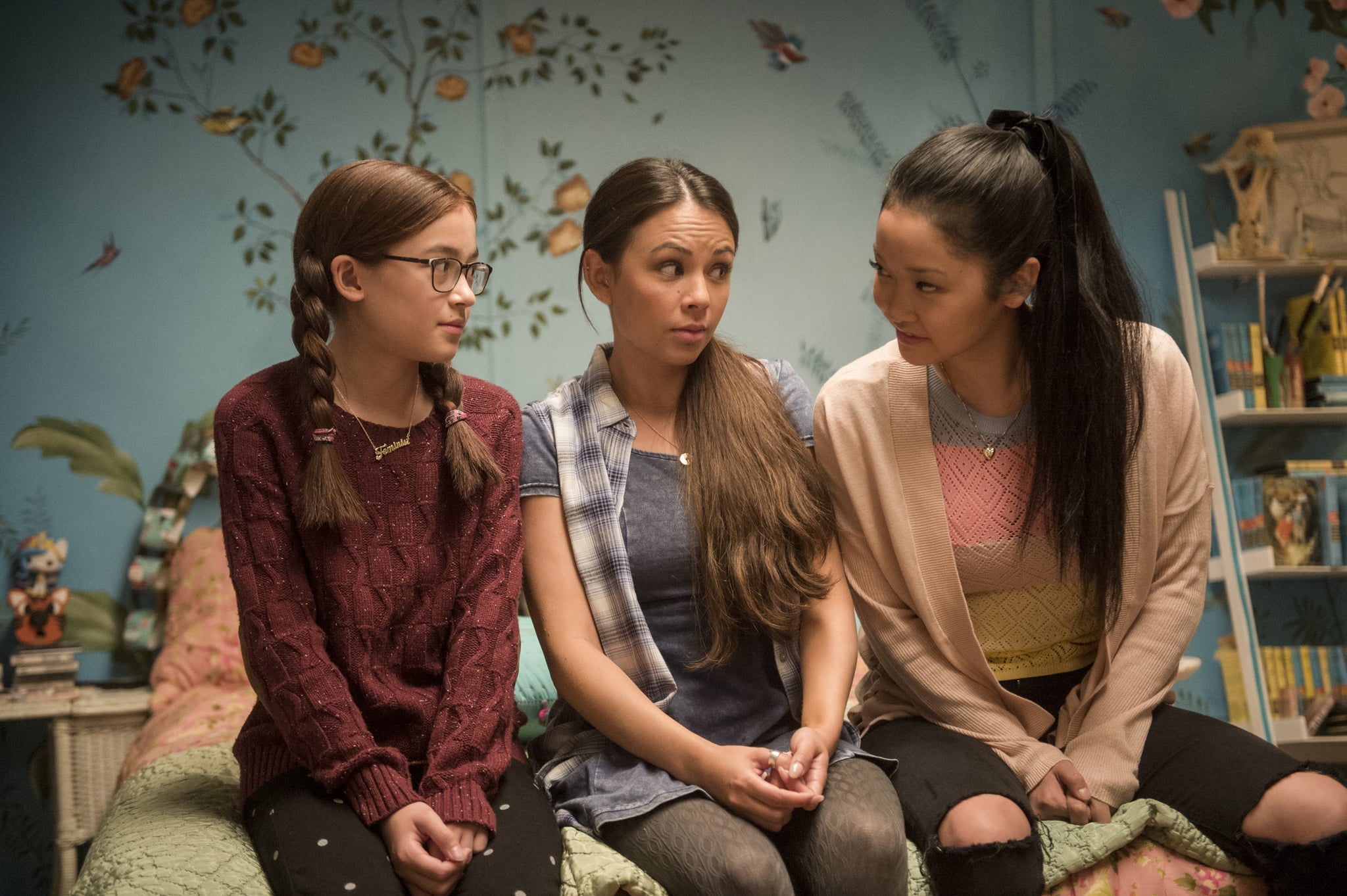In a strange confluence of events, I find myself reviewing for the second time in a row a romantic comedy featuring an Asian-American Actress in the lead role. That’s right,…
In a strange confluence of events, I find myself reviewing for the second time in a row a romantic comedy featuring an Asian-American Actress in the lead role. That’s right, this week I am reviewing the Netflix’s Original Film, To All The Boys I’ve Loved Before. To All The Boys I’ve Loved Before follows the story of Lara Jean (Lana Condor), a junior in high school, who writes but never sends love letters to here crushes. Accidently, her letters are sent to her former crushes including until recently the former boyfriend of her older sister, and the popular Peter (Noah Centineo). Through a series of events Peter and Lana hatch a scheme to fake a relationship in order for Peter to win back the girl who just dumped him, and for Lana to dissuade her sister’s ex-boyfriend from believing she still has feelings for him. From this point a budding friendship and romance develops for Lara and Peter.

To All the Boys I’ve Loved Before is a charming teenage coming of age story and romantic comedy. The central characters are well rounded and complex; not your stereotypical teenagers. As with all Rom-Coms much of the success or failure depends on the likeability and on screen chemistry of its leads. Lana Condor and Noah Centineo both shine in their roles. They bring a charm to their roles and display surprising depth in their performances. These are future stars in the making. The film has excellent pacing and dialogue. I found myself laughing throughout the film. It also brings a sensitiveness to the teenage experience that is lacking in many movies. I believe this film will be relatable to both adults long past their high school days, and for current teenagers alike. I recommend To All the Boys I’ve Loved Before to anyone looking for an enjoyable heart-warming film.

Spoilers Ahead:
To All the Boys I’ve Loved Before is the third film in a few weeks to feature an Asian-American Actor in lead role. Also, this film features a mixed-race family, and treats it as normal; not even commenting on it. This is good. This is portraying the America we live in, and it is a beautiful thing.
Another striking feature of To All the Boys I’ve Loved Before is the value and meaningfulness of physical acts. Lara Jean includes in rules for their fake relationship that there will be no kissing. She defends this by stating her first kiss is important it matters. She wants it to mean something. This film implicitly values the sacredness of physical actions within relationships. It recognizes the power and intimacy of this personal physical actions. Towards the end when Lara Jean and Peter finally kiss, a weight is given to this act. It reveals the trust and love that has developed between them. Afterwards, when a video of them leaks, and everyone in school believes that they had had sex. Lara Jean is distraught in part not only because her name is being sullied for something she did not do, but also because she places such a value on the importance of physical acts, and does not want to commit them prematurely.

This leads to the biggest theme of the film. Lara Jean and Peter both come from broken homes in different ways. Lara Jean’s mother had passed away years earlier, and Peter’s father had abandoned his family a few years before. This has created great hurt in both of their lives but also a real connection. The loss of her mother has had a profound effect on Lara Jean. She is afraid to open herself up to others because she is afraid of being hurt and left again. This is brought up throughout the film. Peter even calls Lara Jean out on this at one point. Lara Jean in voiceover comments on how it was easy it was to be in a “relationship” with Peter, because it wasn’t real and there was no risk of being hurt. This is the crux of the conflict of the film. Lara Jean is afraid to accept her feelings for Peter, or to believe that he loves her back, because she is terrified of what it means if it were true. She is afraid of losing it and being hurt again. She is afraid to take the leap of faith; take the risk to love.
I was reminded of The Four Loves by C. S Lewis where he writes,
There is no safe investment. To love at all is to be vulnerable. Love anything, and your heart will certainly be wrung and possibly broken. If you want to make sure of keeping it intact, you must give your heart to no one, not even to an animal. Wrap it carefully round with hobbies and little luxuries; avoid all entanglements; lock it up safe in the casket or coffin of your selfishness. But in that casket—safe, dark, motionless, airless—it will change. It will not be broken; it will become unbreakable, impenetrable, irredeemable. The alternative to tragedy, or at least to the risk of tragedy, is damnation. The only place outside of heaven where you can be perfectly safe from all the dangers and perturbations of love is hell.
To love is inherently a dangerous proposition. This is something that To All the Boys I Loved Before recognizes. It requires real vulnerability to love. It means opening yourself up to another. It requires trust and intimacy. In a sense you are putting your life in the hands of other, and they can hurt you, break you, and misuse you. To love is a dangerous thing, but both To All the Boys I’ve Ever Loved and C. S. Lewis display it is worth the risk.

In our relationships with others it requires humility, sacrifice, and trust to love truly and this is dangerous. They might not love us back, they might hurt us. Furthermore, loving God truly means humbling ourselves before him, giving up of ourselves fully to him, entrusting our lives completely to God, believing that he will never leave nor forsake us. In Jesus we see that we do not need to fear to love God. He has proven his love to us through the sacrifice of his Son for our sins. “No greater love is this, than a man lay his life down for his friends.”
Lastly, I think this teaches us something about God’s love for us. In one sense God accepted the danger of loving us. He took a risk in sending his Son Jesus to die for us. In no way am I denying that God has a plan, or that he is sovereignly in control, but I simply pointing out that by loving us God has made himself vulnerable to us. God has allowed our choices to have real consequence. We enter into the union of an intimate relationship with God and enjoy an eternity with him, or else we remain forever in broken relationship apart God. God has allowed us to receive or reject his love. He has allowed us the possibility of grieving him, and yet God loved us, and sent Jesus to die for us so that we might become sons and daughters of God. Praise God for such a love, that he loves us despite ourselves, despite how we treat him. In To All the Boys I’ve Loved Before we see the triumph of vulnerable love.
